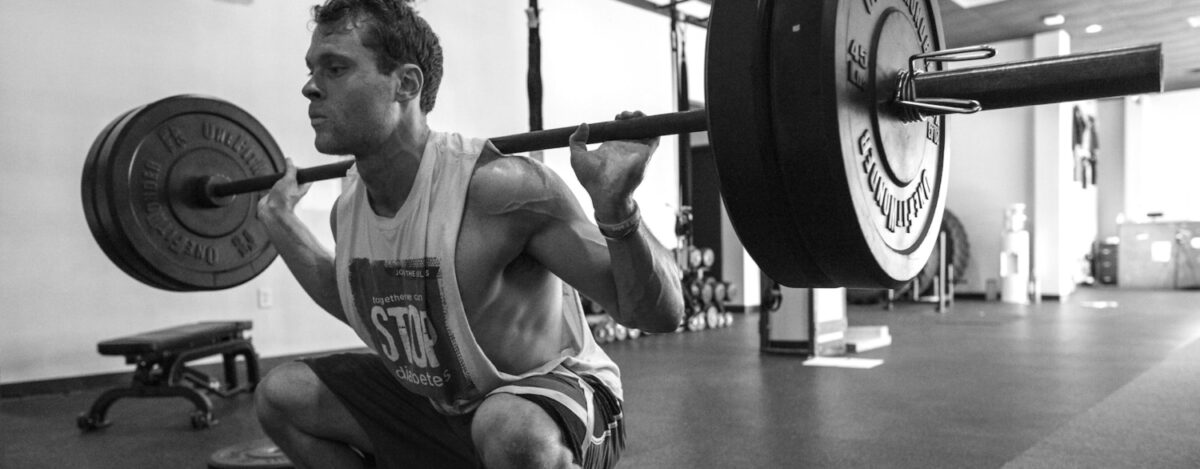Post-Workout Meals and Diabetes: How to Fuel for Success
Editor’s Note: Ben Tzeel is a certified strength and conditioning specialist (CSCS) through the National Strength and Conditioning Association.
“I’m going to the gym. It needs to happen. I need to get in shape,” you tell yourself day after day, for months.
Well guess what? That day has finally come. You went to the gym and just completed a challenging workout. Congratulations! Then you remember the old mantra, “You can’t out-train a bad diet” and you rush home to eat a healthy snack.
A flurry of questions emerge.
“What should I need to eat to look and feel great?” “When should I eat it?” “How will it affect my blood sugar?” “Why do I even need a snack?”
Which brings me to—“What is the point of a post-workout meal?”
When doing an intense workout, your body turns to a few sources for energy:
- glycogen
- blood glucose
- protein stores
- fat
After an intense workout, your body wants energy and wants it NOW. There is no “wait a minute.” So how does our body respond? We turn to the most accessible sources: glycogen and (some) blood glucose.
Did you know that glycogen is branched chains of glucose stored in the liver and muscles for energy use? While blood glucose is convenient since it is already sitting in the blood in usable form, the average person carries 1500-2000 calories worth of stored glycogen, and our blood glucose is limited.
Which do we prefer? Easy choice.
“Okay, why does this matter?” you might ask.
Here’s why: a reduction in glycogen is associated with fatigue.
You know when you hear runners say they feel like they’ve “hit a wall” towards the end of a long race? That would be glycogen depletion, boys and girls.
Fatigue = decrease in performance = exercise and life are not so fun.
Nobody wants that, right?
Additionally, during the act of exercise itself, the muscles are tearing on a very small scale. These microtears are repaired during the recovery process, which, put simply, involves the breakdown of old, damaged proteins and the production of new, improved ones to replace them.
When more protein building is occurring than protein breakdown during recovery, we get a positive protein balance, which leads to stronger muscles. To get into this positive protein balance, however, you need to get the protein building blocks (amino acids) from somewhere and after a workout, your body is PRIMED for utilizing nutrients for recovery.
Why?
There is an increase in insulin sensitivity, muscle protein synthesis and hormone production.
In layman’s terms: your muscles are begging to be repaired via protein intake, and depending on your workout’s intensity, your glycogen looks like Wal-Mart’s electronics section after Black Friday; it needs major restocking.
Enter the post-workout meal.
We have three primary goals in post-workout:
1) Refill glycogen stores.
2) Repair protein breakdown and synthesize new protein.
3) Keep blood glucose levels in range (and correct if they are not already).
What in the world do I eat to do this?
If you ask 25 people their opinions on this topic, you’ll get 25 different answers. To be honest: there is no perfect answer. However, here’s some guidance through the essentials.

Insulin’s role
We all need insulin to survive. However, while we look at insulin as a blood sugar management tool, we need to remember insulin is one of the most anabolic hormones in the body.
We know it shuttles glucose into cells, but it does the same with protein.
In other words: insulin will aid in both glycogen replenishment AND the protein repair process. Two for one special.
However, that doesn’t mean we need to dial up our pumps and go crazy on an insulin spree to get better results.
Maintaining healthy blood sugars is our top priority. Keep this in mind.
Carbohydrates
Why: This is how those glycogen stores get refilled most quickly. Workout intensity will determine depletion levels, but more likely than not, it will need some form of refilling.
If you do a Google search on “post-workout carbs,” you’ll find the general consensus of a simple carbohydrate source to be the “best” way to refill glycogen stores.
By simple carbs, we are talking straight sugar: gummy bears, skittles, or … dare I say it … glucose tablets.
Post-workout tabs? Mmmmm, chalk never tasted so good (I kid I kid).
In all honesty, if your blood sugar is low or you really, really like Skittles, by all means, grab the fast-acting carbs.
However, don’t feel bound to them—if you prefer a lower glycemic alternative after your workout (i.e. sweet potato), by all means, have at it.
How much: The research is split, but one study determined that there was no difference in consuming 0.15g/kg vs 0.6g/kg.
Verdict?
IT’S UP TO YOU.
If you want 15g post-workout, go for it. If you want 95g post-workout, do it. You need to find the amount that works for you, but more is not necessarily better.
Insulin considerations: You may need to dial down your post-workout insulin since your insulin sensitivity is increased, and you may have an insulin surge depending on your choice of meal. Trial and error, friends.
Protein
Why: The catalyst for initiating muscle repair, protein is probably the most important nutrient to consume post-workout.
Yes, more than carbs. Gasp.
Different types of proteins will affect individuals differently, but the preferred type is a fast-digesting source, so the classic example is whey protein.
How much: Research has demonstrated no difference between consumption of 20g and 40g, so again, more isn’t necessarily better.
Insulin considerations: Consumed in isolation, certain protein types, including whey and egg protein, may require insulin to prevent a delayed high blood sugar. Coupled with carbs, protein may have an additive effect in increasing blood sugar, but blood sugar spikes strictly from protein will not be as pronounced.
Fat
Fat is demonized in the post-workout nutrition world since it slows digestion, and, therefore, may prevent the quick absorption of protein and carbs.
My thoughts: if you have some fat in a post-workout meal, it really isn’t a big deal. The carbs and protein will still benefit you, slightly delayed or not.
Bonus: Is there a post-workout “window”?
In a word: NO.
You may have heard of this “golden window of opportunity,” where within two hours of your workout, your muscles undergo voodoo, and you MUST consume your meal in that timeframe or else your workout doesn’t count.
Please. Relax.
If you are training fasted, you need to eat a post-workout meal as soon as possible since your body is breaking down muscle faster than Usain Bolt runs the 100m dash.
If you are training multiple times per day, you should eat a post-workout meal as soon as possible to refuel prior to the next workout.
However, if you are training once a day, consume enough food through the day to meet your caloric needs, and have already eaten at least once?
If you eat outside of that window, you are going to be just fine.
The sky will not fall. The workout counts.
Now … without further ado, let the eating begin!
References:
1) NCBI
2) The American Journal of Clinical Nutrition
3) Journal of International Society of Sports Nutrition. “Nutrient Timing Revisited: Is There a Post-exercise Anabolic Window?”
Read more on Exercise with diabetes.





